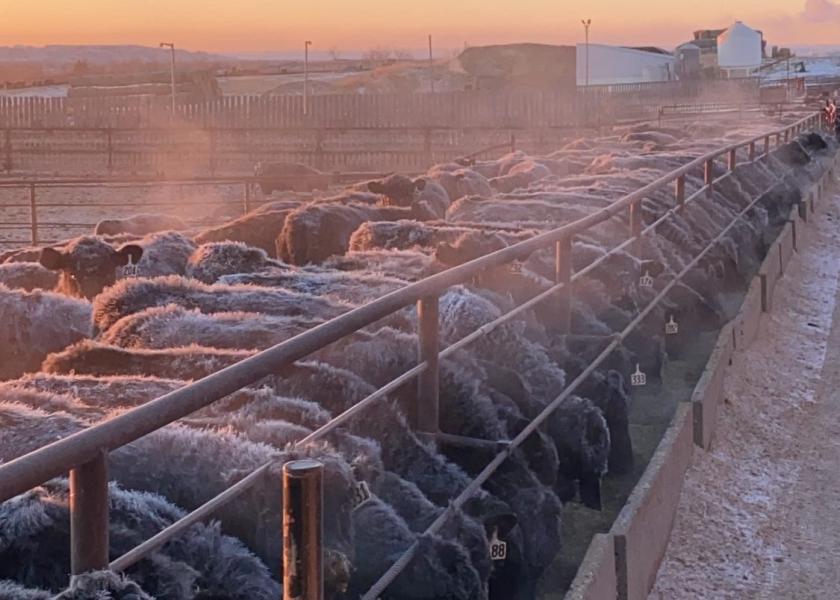Feedyards, Packers Disrupted By Weather and Energy Shortage

A winter storm and the coldest temperatures in decades has created another crisis for cattle feeders and beef packers. Rolling power outages and natural gas shortages at many High Plains feedyards has hampered efforts to keep cattle fed during these brutal conditions.
The deep freeze this week in Texas, which relies on electricity to heat many homes, is causing power demand to skyrocket. At the same time, natural gas, coal, wind and nuclear facilities in Texas have been knocked offline by the record-low temperatures.
On Tuesday several packing plants told Drovers and Farm Journal they were either temporarily shuttered or running at below capacity. Those include the two National Beef plants at Dodge City and Liberal, Kan., which were restarted for the second shift. Creekstone Farms at Arkansas City, Kan., was closed Tuesday.
Tyson Foods told Drovers in a statement, “To ensure the safety of our team members and animal welfare during this period of extreme weather and comply with energy restrictions, we have temporarily suspended or scaled back operations at some of our locations. We are in close contact with energy companies to minimize disruption and fulfill customer orders.”
In a statement from JBS USA and Pilrim’s, spokesperson Nikki Richardson said, “Throughout this extreme weather event, we have remained in ongoing communication with local officials and energy companies to minimize operational impacts. We have reduced capacity or temporarily suspended operations at some of our facilities. We remain focused on team member safety, animal welfare standards and customer needs as we navigate this situation.”
Caviness Beef Packers in Hereford, Tex., was also affected by the weather/energy crisis.
“Late on Friday, the Texas Railroad Commission basically put out an order to prioritize the top two uses of natural gas, one being human resource needs, the second being natural gas as supplies electrical generation facilities,” Ben Weinheimer, vice president of Texas Cattle Feeders Association told AgWeb and U.S. Farm Report Anchor Tyne Morgan.
Weinheimer says Texas Cattle Feeders immediately started having conversations with state officials and gas companies. While resources needed to meet human needs took priory, Texas Cattle Feeders also had their own priority: taking care of animals during the record cold.
“Our feedyard members predominantly use steamed flake corn to include in their rations, which requires the use of natural gas boilers,” adds Weinheimer. “The initial accommodation that our members have been able to make is to idle those boilers back to a point where they're on low fire, essentially to keep everything from freezing up, and then switch over on a temporary basis here to dry rolling or cracking corn.”
This is a developing story and will be updated as we gather more information.







